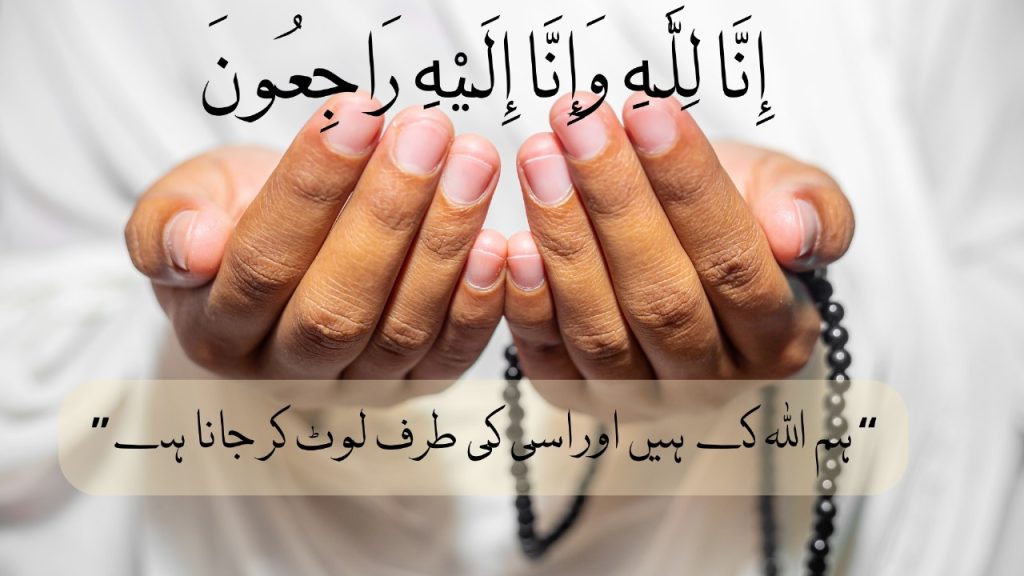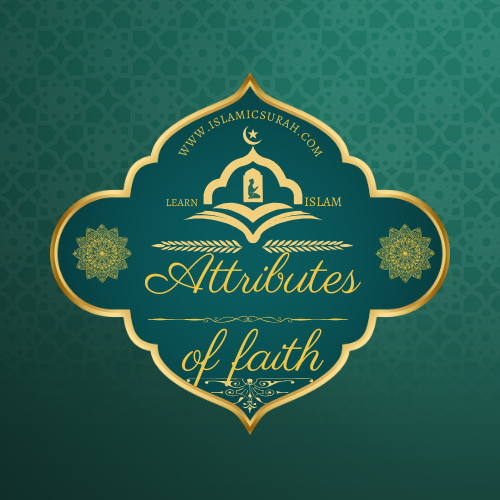Introduction
“Inna Lillahi wa ina ilayhi raji’oon” (إِنَّا ِلِلَّٰهِ وَإِنَّا إِلَيْهِ رَاجِعُونَ) is an Arabic phrase. It’s found in the second and the longest surah of the Quran, Al Baqarah ayat 156. It translates to “Indeed, we belong to Allah, and indeed, to Him we return.” Another term for it is Istirja (إِسْتِرْجَاع). It’s a declaration of acceptance of Allah’s will. It signifies recognizing that all beings belong to Allah and will return to Him. Muslim people recite dua Inna Lillahi wa inna ilayhi raji’un, when someone close to them dies. or in the event that a believer experiences any kind of tragedy. Muslims frequently recite this phrase during trials as a demonstration of patience and recognition of God’s sovereignty.

Inna lillahi wa inna ilayhi raji’un meaning
Inna: Indeed,We,surely
Lillahi: means We belong to Allah
Wa Inna: Wa means ‘and’ & inna means indeed
Ilayhi: towards him(Allah)
Rajioon: translate as ‘will return,
Inna lillahi wa inna ilayhi raji’un benefits
Following are the virtues and rewards of reciting this dua:
- Prophet Muhammad (SAW) would often recite inna lillahi wa ina ilayhi raji’oon dua in times of sorrow and adversity, seeking solace and invoking Allah’s assistance. The significance of this dua is highlighted by several inna lillahi wa inna ilayhi raji’un quotes from Muhammad (SAW) and inna lillahi wa inna ilayhi raji’oon hadiths.
- Our Prophet Hazrat Muhammad (ﷺ) states that “Tears fill our eyes, grief weighs heavy in our hearts, yet from our lips, only words that please Allah are uttered:’inna lillahi wa inna ilayhi raji’oon ayah.”
- In another hadith Prophet Muhammad (peace be upon him) said: “When a calamity befalls you, say: ‘. inna lillahi wa in allah-e-rajioon Arabic, O Allah, I seek reward with You for my affliction, so reward me for it, and replace it for me with something better (Inna lillahi wa inna ilaihi rajiun Allahumma Indaka Ahtasibu Musibati Fa’jurni Fiha Wa Abdilni Minha Khair).”
- This verse of the Quran encourages believers to cultivate patience during challenging moments, reminding them that adversity is a test from Allah and promising a reward to those who demonstrate patience.
- Incorporating “innallaha wa inallah-e-raji’oon” into daily life offers spiritual benefits. It reminds us of Allah’s plan for each of us.
Inna lillahi wa in allah-e-rajioon in Arabic
Inna lillahi wa ina ilayhi raji’uun in Arabic text is:
إِنَّا لِلَّٰهِ وَإِنَّا إِلَيْهِ رَاجِعُونَ
Inna lillahi wa in allah-e-rajioon in urdu
Inna lillahi wa in allah e rajioon in urdu translation is:
“ہم اللہ کے ہیں اور اسی کی طرف لوٹ کر جانا ہے”
Inna lillahi wa inna ilayhi raji’un in English translation
English translation of this dua is:
“Indeed, we belong to Allah, and indeed, to Him we return.”
When to say kalimat istirja ?
- When a thorn pricks you, recite, “Inna illallah, inna ilayhi raji’un.”
- If a mosquito bites you, remember the name of your Lord and recite this ayat.
- If your light goes out, repeat Istirja.
- Remember Istirja when your shoelace breaks or frays.
- These verses are also recited to find a lost thing. Ayat e karima is another dua which is regarded as a potent supplication that calls upon Allah’s mercy and blessings.
FAQ’s
Inna lillahi wa inna ilayhi raji’un allahumma ajirni fi musibati is a complete dua. It reminds us that we return to Allah on Judgment Day. Everything around us belongs to Him. Eventually, everything on Earth will taste death.
In response, you can say: “إن لله ما أخذ، وله ما أعطى، وكل شيء عنده بأجل مسمى”
This translates to “To Allah belongs what He takes, and to Him belongs what He gives, and everything with Him is for an appointed time.”
According to some scholars There’s no indication in Islamic teachings that the phrase “innaa lilaahi wa innaa ilayhi rajiun” is exclusive to Muslims. Hence, it’s appropriate to say it upon hearing about the passing of non-Muslims.

